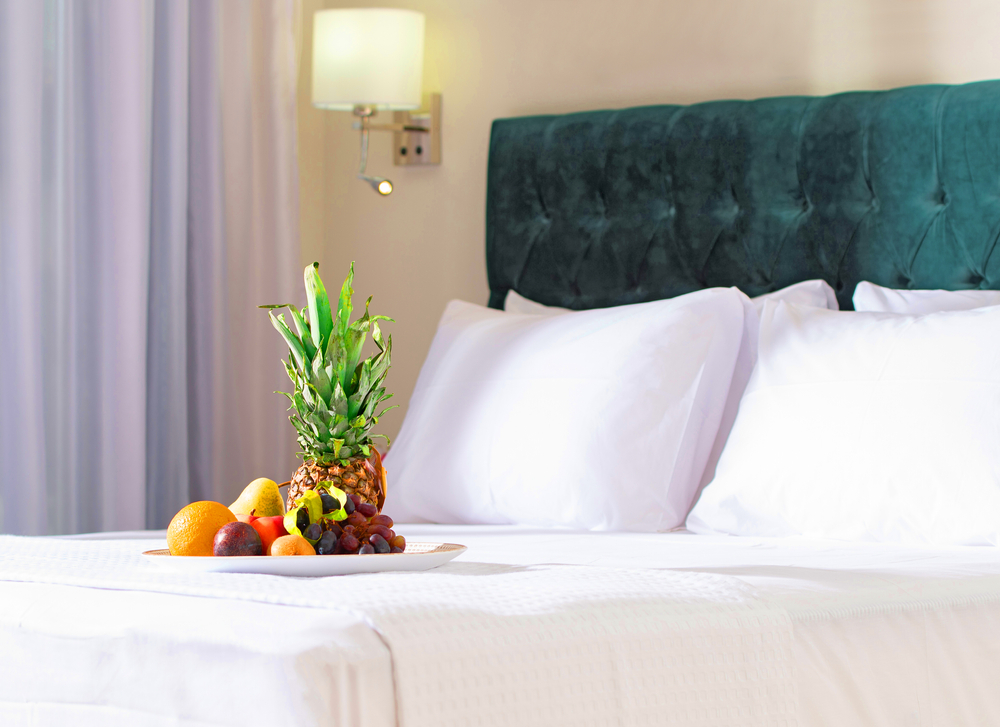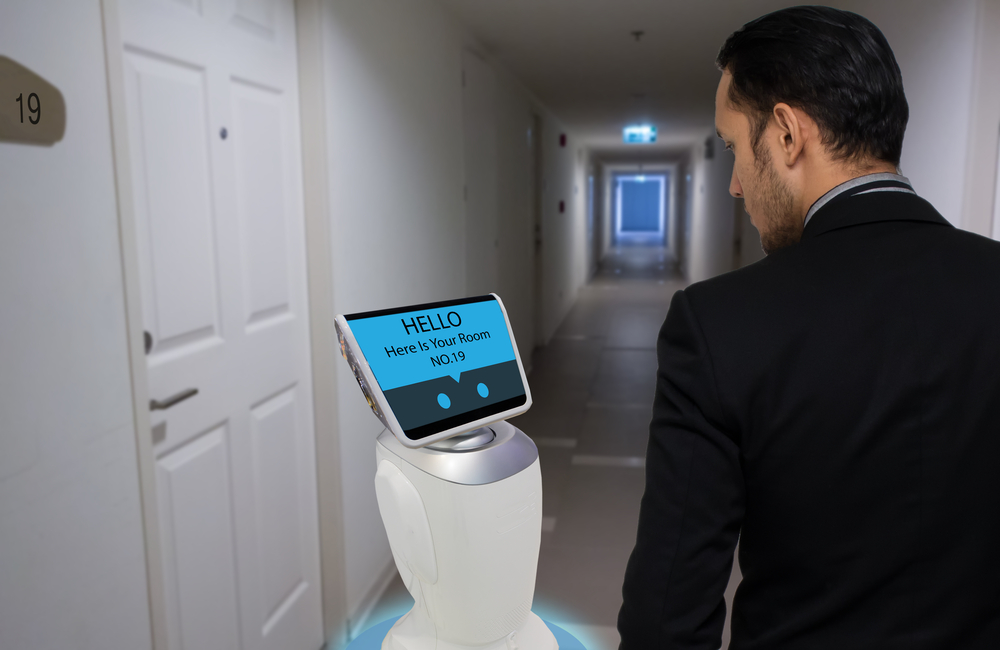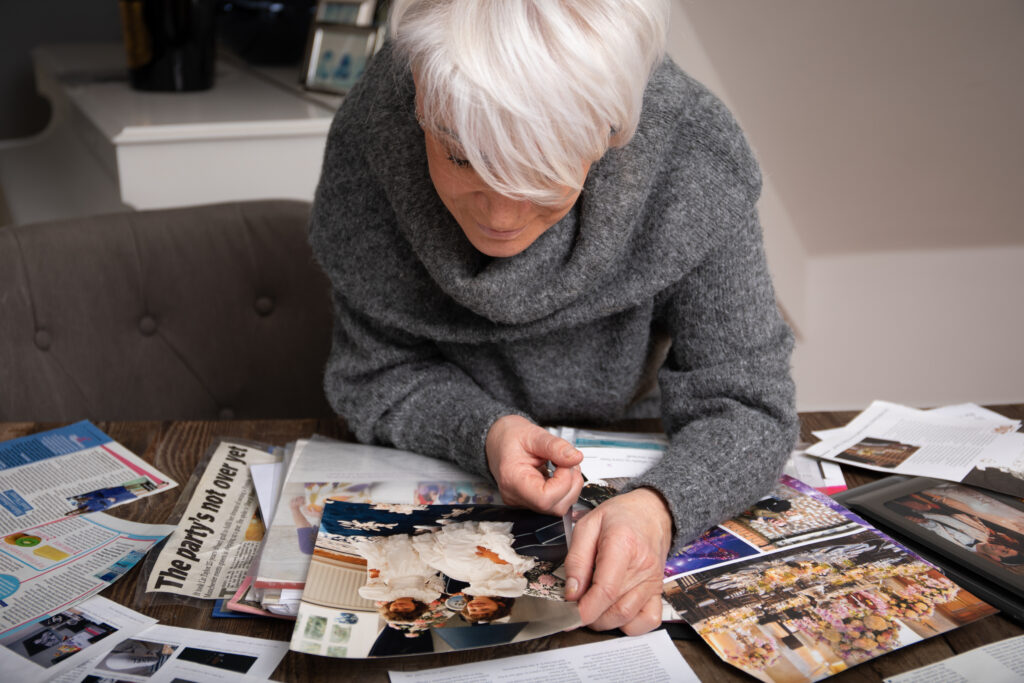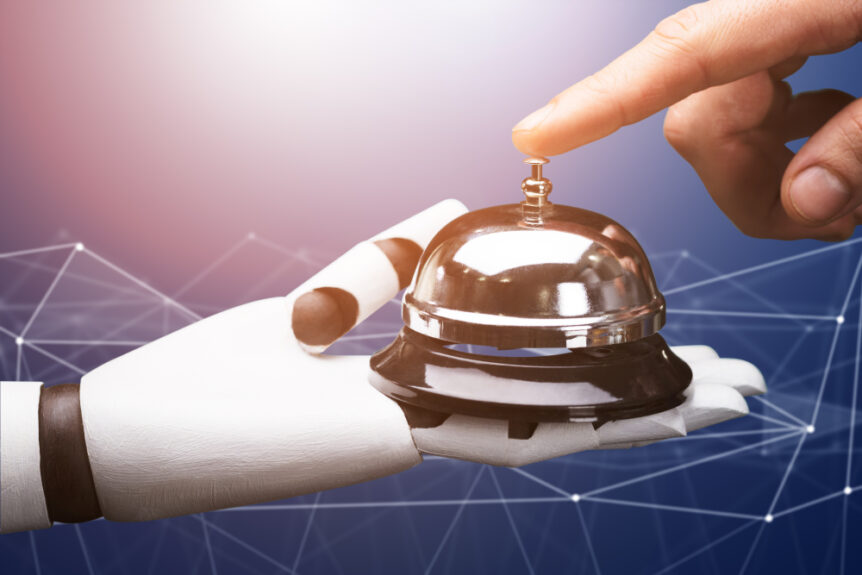In recent years, the hospitality industry has been witnessing innovation and transformation like never before, with the integration of Artificial Intelligence (AI). From personalised guest experiences to streamlined operational processes, AI has become a powerful force in reshaping the way hotels, restaurants, and other businesses in the hospitality sector operate. So, it’s something that I have been looking at with an open mind. In this blog I’ll share my thoughts on the subject covering:
- AI in the luxury sector
- AI’s Role in Enhancing Guest Experience
- A Word on Chat Bots
- AI for Operational Efficiency
- AI and Creativity
- Summary – is AI the future of hospitality and events?
In an attempt to give my view on the question that remains: is AI a threat or a benefit to the hospitality industry?
AI IN THE LUXURY SECTOR – ARTIFICIAL INTELLIGENCE OR ANXIETY INDUCING?
In asking is AI a threat or a benefit to the hospitality industry – I need to fist ask if AI a threat to luxury and the human touch? It may be no surprise to hear that I approach AI with a certain amount of trepidation. Operating in a world of luxury events where the essence of our intention is to be unique, exceptional, inimitable – how can AI successfully emulate a human being without becoming a poor copy?
With our idiosyncrasies and let’s face it sometimes ludicrous ideas, we bring a level of creativity and ambition to event planning that I’m still to be convinced, AI can replicate. Certainly not, while still producing the same quality and exclusivity.
That’s not to say that I don’t think AI can’t add value. In fact, if it takes the load in terms of streamlining processes, then perhaps AI could clear the path for even more creativity and blue sky THINKING.
AI’S ROLE IN ENHANCING GUEST EXPERIENCE
AI can allow venues to provide next level personalisation that enhances guest experience. It can also be used to streamline communication.
Personalisation is something I feel incredibly strongly about. It’s one of the cornerstones of luxury events. For hotels and venues, it is paramount when striving for the highest levels of service.
IF there’s a way to make this element of luxury service quicker and easier then, I am on board. Partially. From recommending room preferences to suggesting dining options, AI can enable hospitality businesses to analyse guest preferences and predict behaviours with breakneck speed. In this respect, it can be a useful tool to improve customer satisfaction – well who doesn’t want to be made to feel special?

My worry is that if we become too reliant on computers to oversee the personalisation process, we lose the very essence of our what it is to be a truly brilliant hospitality professional. Have you stayed in a hotel where the staff know your name, your children’s name, your favourite table, your dinner preferences, or favourite drink. Luxury hotel staff make it their business to know, and this is the heart and soul of five-star service. AI should be used to compliment not replace. Hospitality after all is rooted in human connection.
A WORD ON CHATBOTS
AI-powered chatbots are being used more frequently to offer instant customer service, handling online reservations, answering queries, and providing information 24/7. It is argued that this develops guest communication. In theory, we can access help and advice in real time, at any hour, in any time zone. Without the need for human intervention.
I’ve come across a few that work well. Many work poorly, resulting in frustration and disappointment. My advice – use them if you will. I’m certain they will improve. In the meantime, remove all other methods of contact from your communications channels at your peril.
>>>BACK TO TOP
AI FOR OPERATIONAL EFFICIENCY
In the operational sphere of hospitality AI algorithms can significantly streamline processes, freeing up the workforce to focus on the more personal elements of hospitality.
AI can analyse historical data to predict demand and inform dynamic pricing strategies. It can ensure better resource allocation and cost management.
Therefore, this is one area of hospitality management where I feel AI could add real value. It takes away the element of human error without standing in the way of the social aspects of hospitality. The challenge here is for AI to learn react to real world events that can drive revenue.
>>>BACK TO TOP
OTHER OPERATIONAL USES FOR AI WITHIN HOSPITALITY
AI can be used to draw up pricing models that adapt in real-time based on factors such as demand, seasonality, and market trends. Hospitality businesses can use AI to maximise revenue during peak times and attract customers during in low season.
Routine tasks like check-ins, check-outs, and room service can be automated using AI-driven computers, even robots. This has the benefit of freeing up human resources for more complex and personalised services.
I’m yet to stay in a hotel where a robot delivers my dinner to the door – but I’m now wholly against the idea. Even if for novelty value only.

Finally, security, AI-based facial recognition systems can enhance security by monitoring and controlling access to restricted areas. It can also be utilised in anti-fraud detection.
AI AND CREATIVITY
Finally, is AI as creative as the human mind? Can AI mirror the creative process and produce an end result as fanciful or fantastical as I do in my event planning business. Would the end result be in line with a client’s vision?
AI is now being used from everything from social media video generation to recipes, which throws open a conglomeration of potential threats and benefits.
In my business, will events simply become a process? Losing their theatricality and inventiveness. For hotels and restaurants, will we do away with chef and incorporate menus generated solely by AI, based on trends and data analysis rather than a reflection of the chef’s personality? More importantly, is this something we need to be very wary of in the hospitality sector?
Therefore, I approach the creative side of AI with apprehension. My creativity is my superpower. The one element of my business that stands me apart from anyone else. I’m unconvinced that AI will ever be able to emulate consciousness. Or the unique collection of subjective and emotional experiences that form the personal perspective of each human being. These elements are not just essential for human creativity – they are what makes us human.
Creativity involves making novel connections, expressing original ideas, and often defying conventional patterns. It is a journey. The culmination of everything a person has seen and experienced to date. Currently AI is both empowered and constrained by data and patterns. Context. Emotion. Abstract thinking. All beyond its reach. To be truly creative, we need to defy patterns and disregard data. This is the one thing I hope AI will never be able to do.
The good news, I feel, is that being unpredictable, even downright bonkers, should be held in higher esteem as AI grows.
My creativity is way too erratic to every be emulated by AI!

SUMMARY – IS AI THE FUTURE OF HOSPITALITY?
The hospitality industry is built on human connections and personalised service. Overreliance on AI may lead to a loss of the human touch, and the death of true creativity, potentially impacting the emotional connection guests seek in hospitality experiences.
Striking a balance between technological innovation and maintaining creativity and the human touch is crucial for the sustainable success of the hospitality industry in the age of AI.
TO READ
The Times debates the future hierarchy of AI and human beings https://www.thetimes.co.uk/article/the-future-is-ai-but-will-it-allow-humans-to-play-a-part-m39m736hm?gad_source=1&gclid=EAIaIQobChMI7MGS3KKthAMV8JxQBh1oxQ7-EAAYBCAAEgJwvvD_BwE
TO LISTEN
Keen to learn more about machine learning? https://podcasts.apple.com/gb/podcast/ai-today-podcast-artificial-intelligence-insights-experts/id1279927057″>List here:
TO SHARE
Can AI be creative? Can you tell the difference between real art and AI generated?
https://wpln.org/post/can-you-tell-the-difference-between-genuine-and-ai-generated-art/


